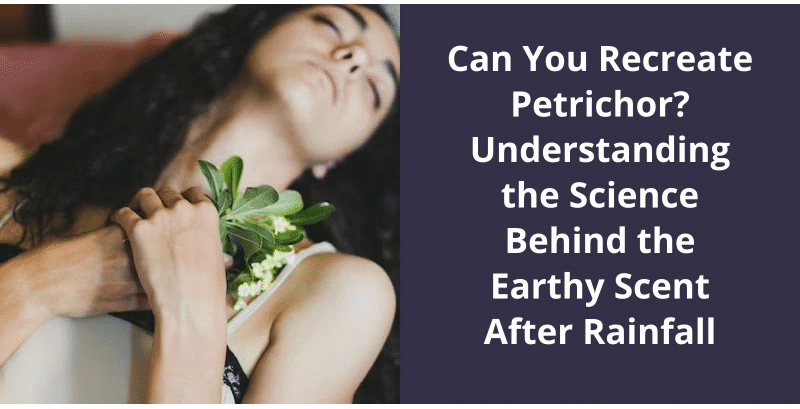Yes, recreating petrichor, the distinct scent that fills the air after rainfall, is indeed possible. Researchers discovered that this fresh, earthy scent is a blend of volatile compounds, essentially oil, released by soil-dwelling bacteria, plants, and other organisms. To replicate petrichor, you need to combine these naturally occurring oils, compounds, and minerals in the right proportions. These blends are often used in perfumery and aromatic products to capture the essence of that refreshing after-rain smell. However, it’s important to note that replicating the exact scent might be challenging due to the complexity involved and the sheer variety of subtle notes present in petrichor.

What Scents Go Well With Petrichor?
Petrichor is a unique scent that’s often described as the earthy smell after a rain shower. It’s a scent that’s loved by many and can be paired with a variety of other scents to create a truly unique fragrance. Some of the scents that pair well with petrichor include florals, garden scents, and musks.
These fragrances work well together because they’re both natural scents that come from the earth. When combined, they create a beautiful and natural fragrance that’s perfect for a relaxing evening at home.
Musks are also a popular choice when it comes to pairing with petrichor. These musk scents add a warm and cozy feel to the fragrance, making it perfect for a cool fall evening.
When it comes to using petrichor in home fragrance products, candles, wax melts, and tarts are all great choices.
So the next time you’re looking for a new fragrance to try, consider combining petrichor with one of your other favorite scents for a truly unique fragrance experience.
The Science Behind Petrichor and How It Is Created.
Petrichor is the distinct, earthy smell that arises when rain falls on dry soil. It’s created by a chemical reaction that occurs when moisture mixes with organic compounds in the soil, such as plant oils and bacteria. This reaction produces a molecule called geosmin, which is responsible for the unique and recognizable scent of petrichor.
There are a few different methods for replicating the distinct and beloved fragrance of petrichor, the earthy scent that arises when rain falls on dry soil. One popular approach involves using natural compounds called terpenes, which can be blended to create an aromatic profile that closely mimics the real thing. Among the terpenes recommended for this purpose are myrcene, terpineol, and pinene, which each contribute their own unique notes to the fragrance.
How Do You Replicate the Smell of a Petrichor?
Petrichor, also known as the scent of rain, is a unique smell that can transport people to a specific time and place. It’s a combination scent that emerges after a rainfall, and it enchantingly captures the essence of nature. The smell of petrichor can be replicated using scent molecules called terpenes.
Myrcene is a vital element that gives petrichor it’s earthy and musky aroma. It’s commonly found in plants such as hops, thyme, basil, and mangoes.
Terpineol is a scent molecule that’s a fresh and floral aroma, making it an excellent addition to the smell of petrichor. Terpineol is naturally occurring terpene that’s found in a variety of flowers, pine, and cumin.
Pinene is another important terpene that contributes to the smell of petrichor. Pinene is a pine-scented compound that’s present in several plants, including pine, rosemary, and basil. It’s an essential compound for creating an authentic petrichor aroma because it adds the scent of pine needles to the blend.
To create a replica of petrichor, these three terpenes must be combined in the correct proportions. It’s crucial to ensure that the proportion of each terpene is accurate, as this will affect the overall scent of petrichor. In addition, it’s essential not to use too much of any one terpene as this can overpower the blend.
Conclusion
Whether used in aromatherapy or simply as a way to bring the outdoors inside, these oils offer a natural and effective way to enhance your environment and uplift your senses. While the exact composition of petrichor may remain a mystery, the benefits of essential oils for our well-being are undeniable.





